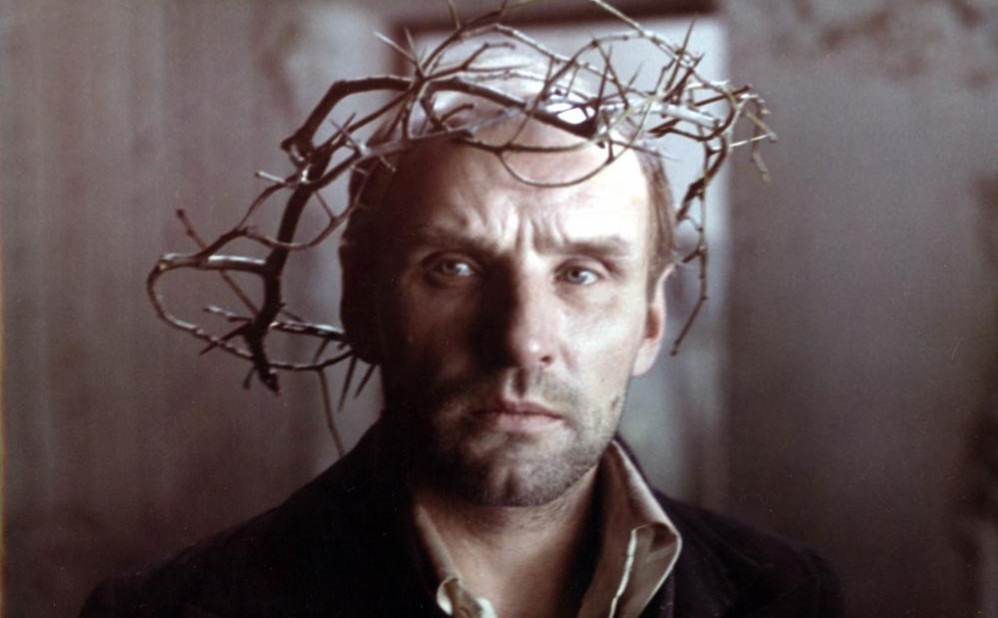
Just like surrealism and fantastic realism, science fiction is a genre that allows a great degree of creative freedom, since the narrative is not bound by the constraints of present-day reality.
Thus, it provides a fertile ground for all sorts of allegories, metaphors, and alternative realities, as well as a way of bypassing censorship.
The defining characteristic of the genre is the approach toward science and technology in some way, but these themes do not necessarily need to be their subject matter.
In fact, some films on this list simply use technology as a way of justifying the existence of worlds in which some aspects of our own reality are clearer, or detached from a series of pre-conceived ideas, providing the audience with enough detachment to interpret them in a new light.
Be it by exploring the consequences of the development of certain technologies, or by creating allegories that relate to certain ideas, the following movies go beyond simple storytelling to provide powerful philosophical insights into aspects of our existence.
10. Akira
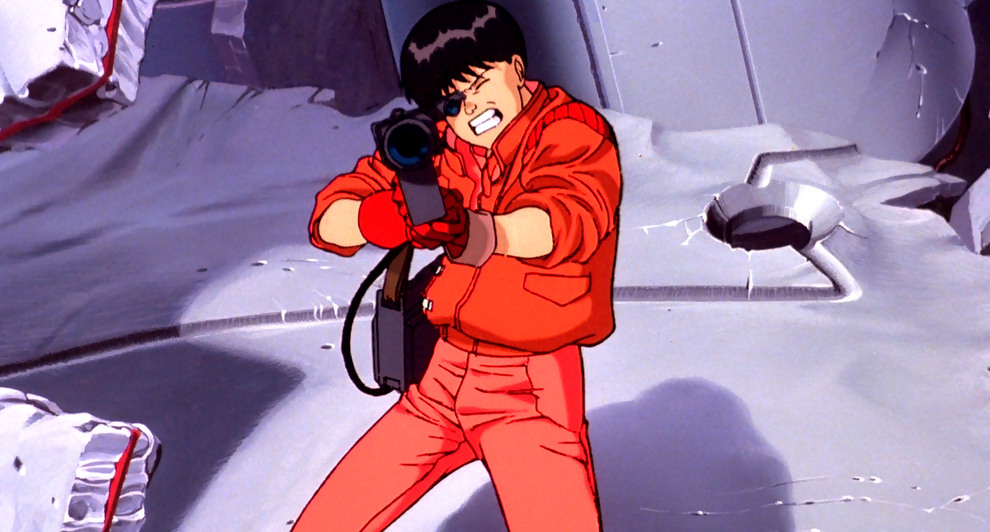
In most dystopian societies, governments are extremely authoritarian, using technology to control every aspect of the lives of its citizens. This film, however, presents a post-apocalyptic society immersed in utter chaos. T
he government is indeed authoritarian to some extent, but is too corrupt and inefficient to avoid biker gangs and rebel factions from wreaking havoc in Neo-Tokyo, the city built from the ashes of the former Japanese capital. In this scenario, we follow teenage delinquents Tetsuo Shima and Shotaro Kaneda, members of the biker gang Capsules.
One night, while fighting their rivals, The Clowns, Tetsuo crashes his bike while trying to avoid Takashi, a strange childlike creature with supernatural powers. Following this encounter, Tetsuo starts developing powers himself.
As his powers grow and his mind deteriorates, Tetsuo embarks on a quest to release Akira, a mysterious entity kept in cryogenic storage next to Neo-Tokyo’s Olympic stadium, eventually leading to a catastrophe of epic proportions.
Considered a landmark in animated science fiction, Akira has intricate hand-drawn visuals, constant explosions, and a kind of oddity that is typical of Japanese animations.
Although not explicitly philosophical, the change in Tetsuo’s attitude following his acquisition of supernatural powers, and the reaction of each of the concerned parties, touch on themes such as the corrupting nature of power, friendship, and determinism.
9. The Matrix
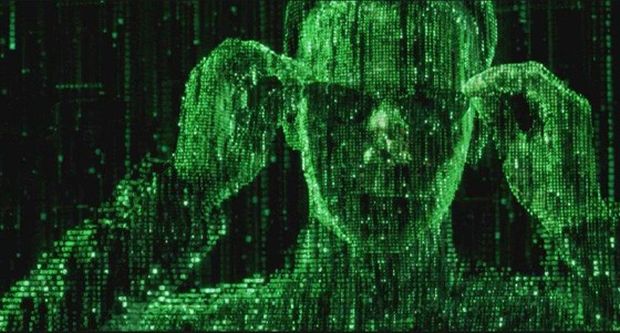
As Agent Smith puts it: “As you can see, we’ve had our eye on you for some time now, Mr. Anderson. It seems that you’ve been living two lives. In one life, you’re Thomas A. Anderson, program writer for a respectable software company, you have a social security number, you pay your taxes, and you help your landlady carry out her garbage.
The other life is lived in computers, where you go by the hacker alias Neo and are guilty of virtually every computer crime we have a law for.”
More than a hacker, Neo is someone who constantly feels that reality is not what it looks like. Contacted by Morpheus, the leader of a group of cyber-rebels, Neo is offered a choice: to return to his mundane life, or to wake up to the real world.
The Wachowskis’ second feature strongly resembles Plato’s Allegory of the Cave, only this time including machine guns, bullet dodging, helicopters, and karate. Sometimes criticized for lack of depth, it is nevertheless a very entertaining picture.
As with many contemporary classics, “The Matrix” is full of references. Quotes from “Alice in Wonderland”, influences from Hong Kong martial arts films, Zen Buddhism, Japanese animation, and cyberpunk all come together to form a film whose ideas, concepts, and visual style have strongly influenced many subsequent action and science fiction films.
8. Gattaca
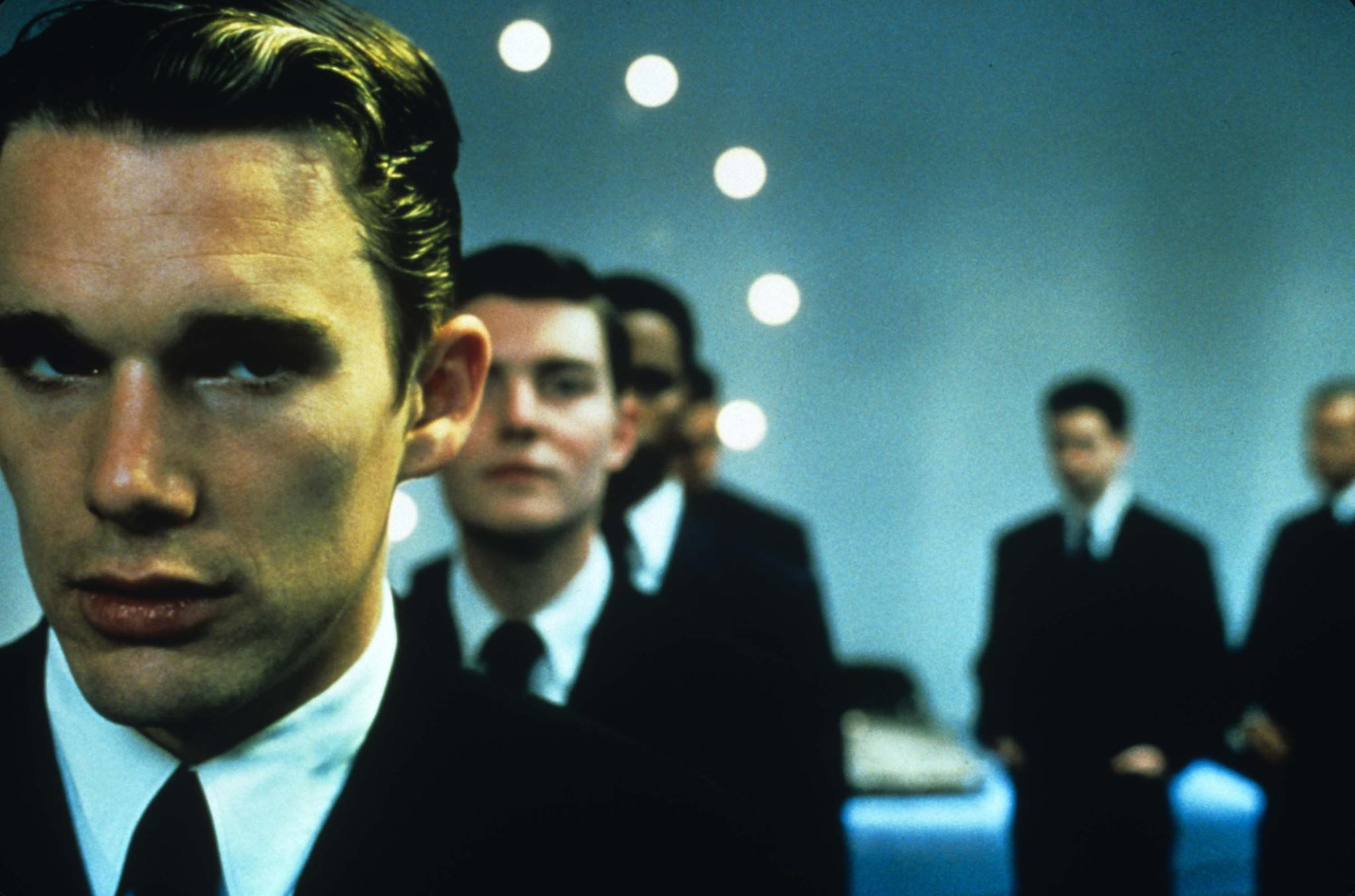
Thanks to developments in reproductive technology, human embryos are genetically engineered so that they only inherit the best traits of their parents. Vincent’s parents, however, decided not to engage in eugenics, and as a result, he possesses nearly extinguished dysfunctions such as myopia and a congenital heart defect.
Although formally illegal, genetic discrimination is widespread in society, which causes Vincent to face enormous prejudice. To be able to chase his dream of becoming an astronaut, he becomes a “borrowed-ladder”, assuming the identity of Jerome, a former swimming star.
Despite his impressive genetic profile, Jerome descended into depression and tried to kill himself after failing to earn the gold medal in a competition.
With Jerome’s genetics and his own determination, Vincent quickly becomes one of the favorite celestial navigators of the Gattaca Aerospace Corporation, but just as he is about to be sent on a mission to Titan, the murder of the mission director threatens to foil his plans.
Although sometimes exaggerated, “Gattaca” portrays a reality conceivable within our lifetimes. It discusses questions regarding the morality of genetic engineering and the role biology plays in our actions in contrast to our spirit.
The film, however, goes beyond discussing these issues; it explores the idea of being born to do (or not to do) something, which affects the lives of many people, be it the son of a successful businessman or someone with a humble background, and how these expectations are harmful to everyone.
7. Her
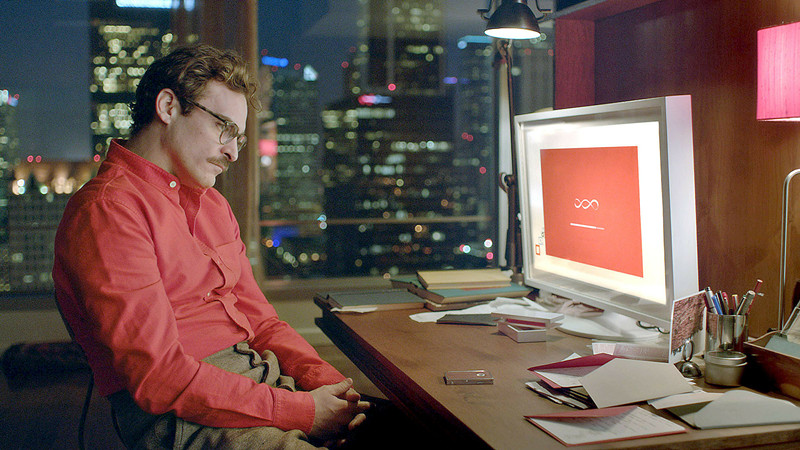
“Her” is not the first love story between a person and a computer. In fact, love stories between humans and artificial beings can be traced back to Greek mythology. Spike Jonze’s film, however, is highly original in its approach to the theme. In contrast to most films dealing with artificial intelligence, “Her” is totally focused on the individual, rather than society.
The excellent opening scene already makes this clear; we are presented with a wholehearted declaration of love, only to discover Theodore, the main character, simply does this for his job.
The contrast between that romantic overture and his actual life sets the tone for the relationship that will develop between him and Samantha, a talking operational system with artificial intelligence.
The existence of such technology is presented somewhat matter-of-factly, during an advertisement, and although Theo’s life changes positively due to Samantha, the effects of artificial intelligence seem limited to a personal level.
Thanks to this approach, the reality presented in “Her” is far more believable than in most films dealing with this subject, letting us focus entirely on their relationship and its implications.
Alternating between funny and heartbreaking, “Her” offers a provocative take on relationships. Other than the obvious questions regarding the possibility of a machine truly feeling love, this film makes us reflect on how technology is changing the way we relate to each other, and whether this will lead to a point where we simply can’t handle the complexity of true relationships.
6. Brazil

Named after its leitmotif, Ary Barroso’s “Aquarela do Brasil”, this film illustrates some of Terry Gilliam’s best qualities as a director. “Brazil” is set in a fictional world that seems like a satirical version of “1984”.
Just like in George Orwell’s dystopia, the world is dominated by an almost omniscient totalitarian government, which controls any form of dissent through censorship, violence, and torture, prerogatives of the Ministry of Information.
Despite this daunting reality, Sam Lowry, a clerk at the lowliest department within the ministry, is happy. He isn’t bothered by his small apartment and solitude, as he periodically escapes into a daydream in which he is a winged warrior, pleasantly flying above the sea of gray buildings and finally defeating monsters to free a beautiful woman.
His life changes when, while trying to deliver a compensation check to the wife of a man mistakenly abducted by the government, he literally meets the woman of his dreams, who – as he soon finds out – is in grave danger.
“Brazil” is a critique of bureaucracy as much as it is of modern consumer society. In a satire of the many gadgets in our daily lives, the society of “Brazil” is dependent on machines that never work as they were supposed to. Lowry’s mother and her elderly friends are addicted to cosmetic surgery that always leads to “complications”, making them even more disfigured.
What makes this film’s message so compelling is that Lowry is not a rebellious character. He is an average citizen just like us, but who falls victim to a dehumanizing system in which the oppressors are the oppressed themselves.